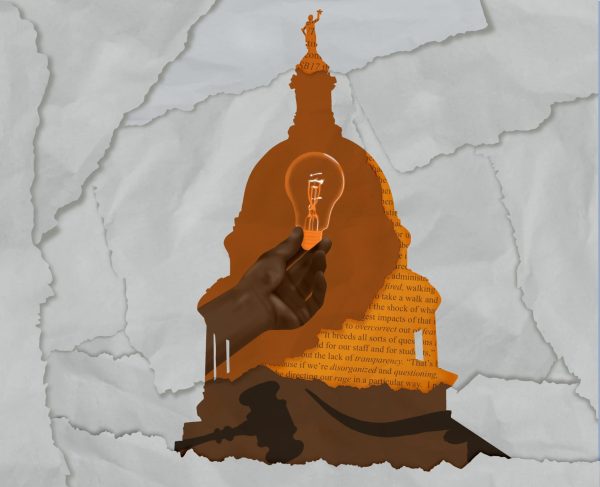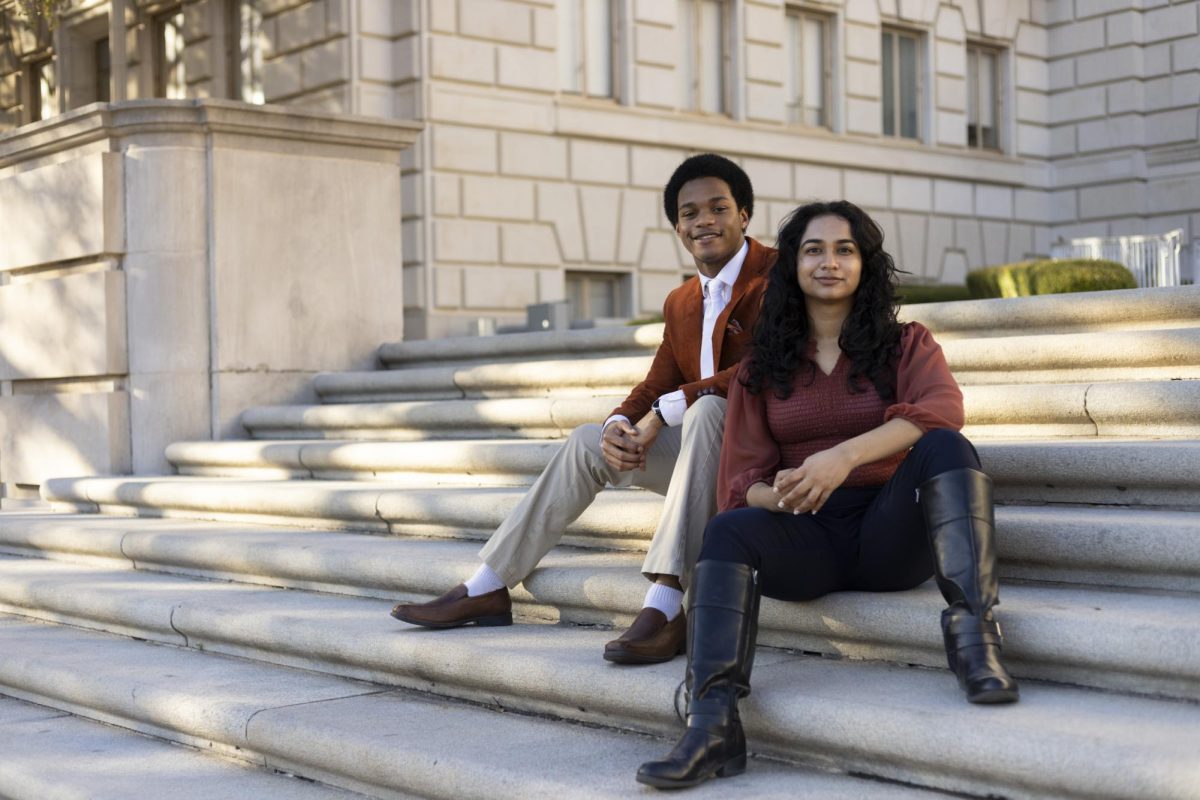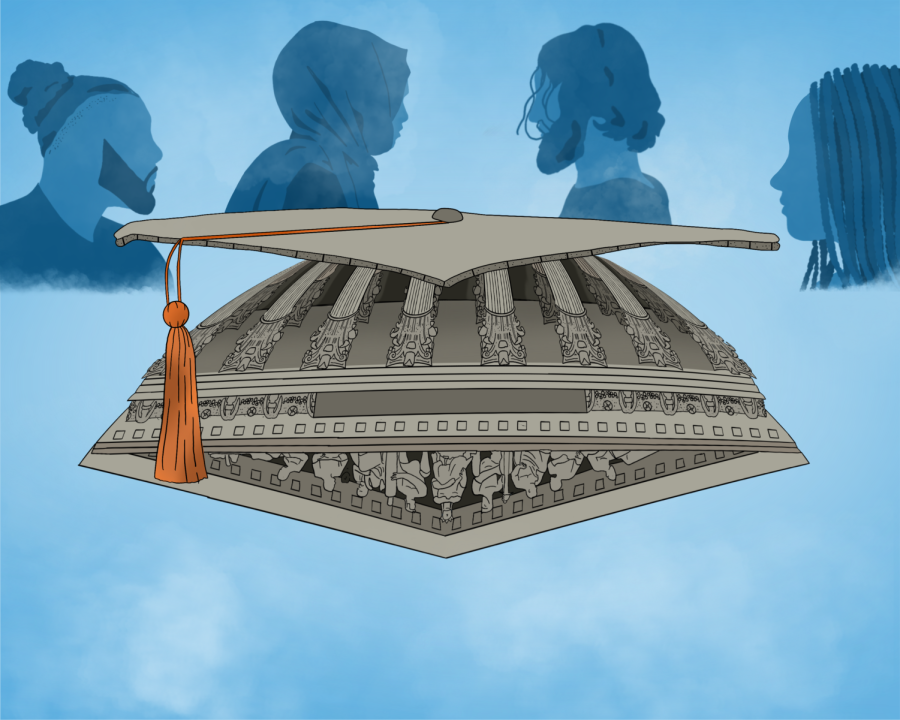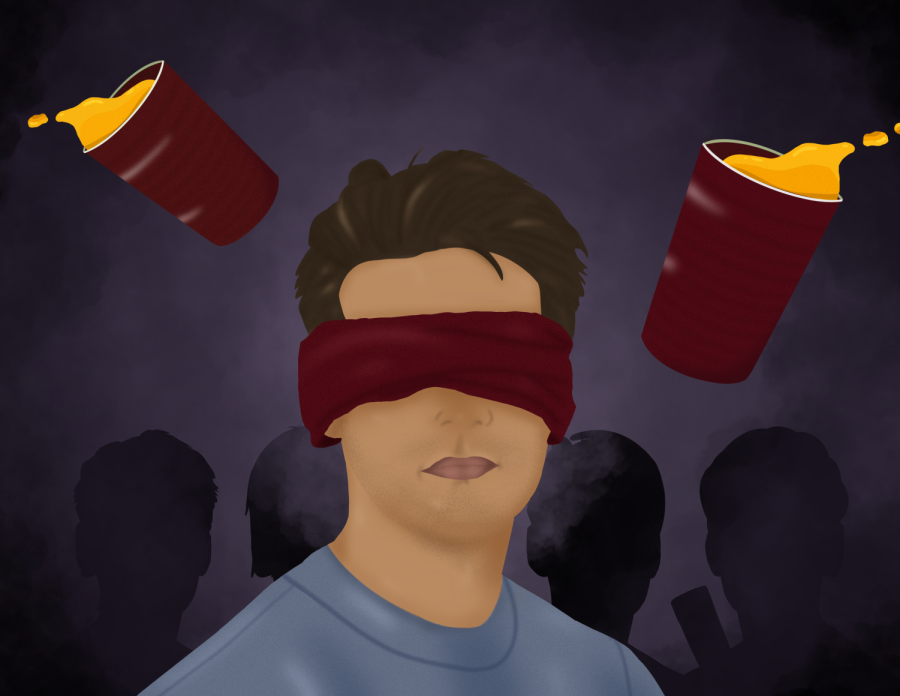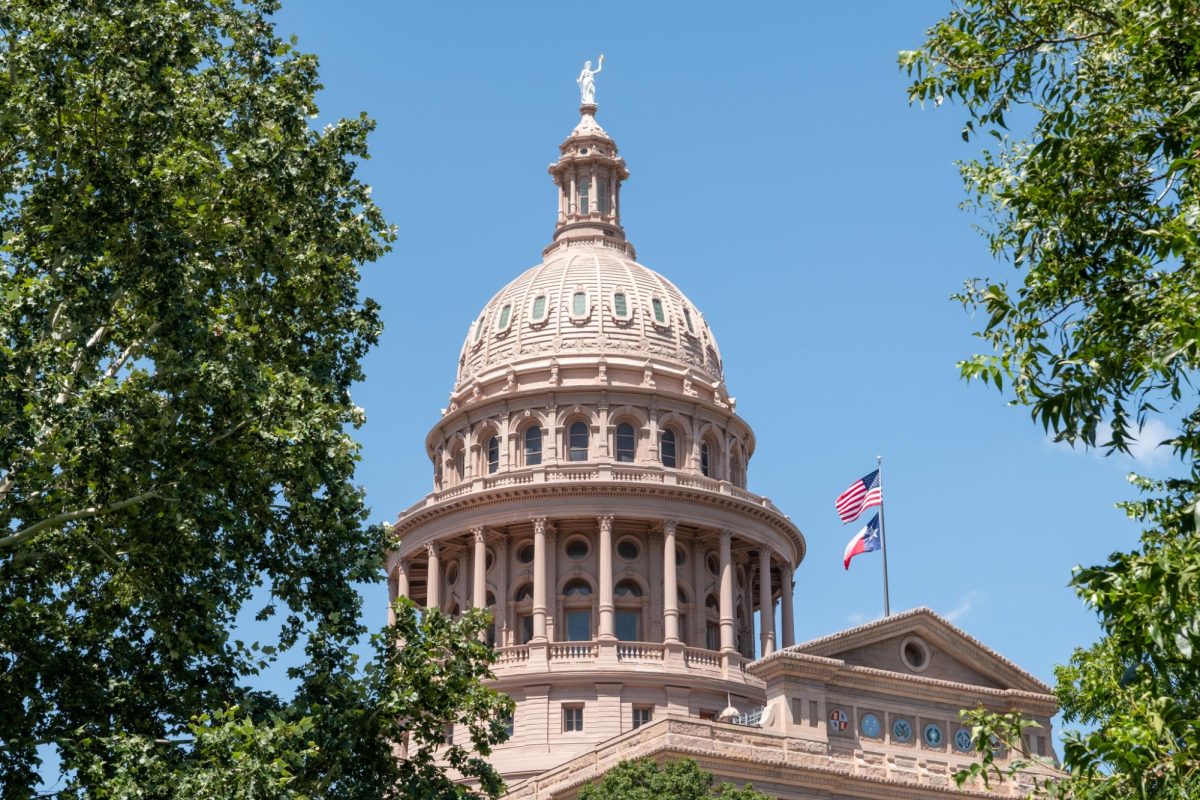On a Tuesday morning, Lisa Moore received a call informing her that a member of her department’s staff received a termination notice. This wasn’t an isolated incident. A cascade of texts from colleagues across the University flooded in, all with the same unsettling news that they were being laid off.
“It was a very traumatic day on campus,” said Moore, the chair of the department of women’s, gender and sexuality studies. “I personally saw people, for example, administrators who had to tell people that they were fired, walking down the street crying, just trying to take a walk and gather their composure because of the shock of what had happened.”
Since its filing, SB 17 has caused uncertainty among Texas public universities. Rep. John Kuempel, a primary sponsor of SB 17, testified during deliberations in May 2023 that staff would not lose their jobs, assuming they’d be reassigned to student services. However, according to the American Association of University Professors at UT Austin, more than 60 UT staff members received 90-day termination notices on April 2, despite being reassigned from DEI-related positions to new roles.
These layoffs signal a major issue: overcompliance.
UT’s SB 17 implementation is exceedingly cautious, resulting in layoffs beyond what the legislation requires. While the University may fear legal consequences, the outcome unnecessarily sacrifices both transparency and respect for the UT community.
The University declined to comment for this editorial.
UT administration must take every step possible to minimize the harm caused to students and faculty due to the changes mandated by SB 17.
With intentionally vague language and unclear implementation guidelines, no precedent exists for how our University should adjust its practices. Despite uncertainties, the fear of losing funding remains.
“This bill holds funding hostage until compliance is achieved,” said Amber Villalobos, a fellow specializing in higher education policy at the Century Foundation, a progressive, independent think tank. “One of the biggest impacts of that is it has led institutions like UT to overcorrect out of fear of facing legal action.”
The University may be overly cautious in its implementation to ensure the safety of its public funding. With state funding hanging in the balance, comments like those below from State Senator Brandon Creighton place immense pressure on public universities like UT to comply.
“I am deeply concerned with the possibility that many institutions may choose to merely rename their offices or employee titles,” Sen. Creighton wrote in a letter addressed to public university systems throughout the state. “This letter should serve as a notice that this practice is unacceptable — and also a reminder that SB 17 encompasses stringent enforcement provisions, including the potential freezing of university funding and legal ramifications for non-compliance.”
Sen. Creighton believes the initial changes were not substantial enough. However, UT’s layoffs of reassigned DEI staff may have gone beyond what the legislation required, according to Antonio Ingram, assistant counsel specializing in racial justice in educational equity at the Legal Defense Fund. He emphasized that the bill mandates a remedy period for any violations.
“If there is a violation that is found, the school is given 180 days to cure the violation,” said Ingram. “So, even if there were things that were taking place that were found to be violating Senate Bill 17, there’s a way to remediate that without being fully conservative.”
Conservative state representatives and legislature aren’t the only ones the University has an obligation to. The Multicultural Engagement Center housed several committees and resources for students, even providing some with essential career development and meals for students experiencing food insecurity.
President Hartzell wrote in a letter addressed to the UT community, “Respect for our students, faculty, and staff will be essential as we make these changes.” Taking steps beyond what is absolutely essential to comply with the law is neither necessary nor respectful of any of these parties.
“It is really sad to see that they don’t even want to take input from students when students contributed so much to even build these spaces,” said Miguel Anderson, advertising and humanities senior and co-director of operations for QTBIPOCA. “We literally create the culture.”
The MEC’s resources heavily influenced Anderson’s decision to attend UT, but SB 17 forcefully stripped those away from him.
Mónica Jiménez, an assistant professor of African and African Diaspora Studies, has lobbied against SB 17’s implementation from the start.
“(It) breeds all sorts of questions and uncertainty for us and for our staff and for students,” Jiménez said about the lack of transparency. “That’s by design. Because if we’re disorganized and questioning, we can’t be directing our rage in a particular way.”
Pauline Strong, president of AAUP@UT, said that UT did not explain why or how many people were fired and did not consult staff on the decisions.
“We believe the university should have engaged stakeholders, including faculty, in this decision,” Strong said. “If more changes were needed to comply with SB 17, there should have been an open process of consultation. We believe that any decision of this nature should include details about the kinds of employees that are being affected (and) the number of employees that are being affected.”
In a CBS interview responding to the mass layoffs, Sen. Creighton said, “Many of them will remain in a teaching role at the university. And some, if they’re not needed, if they’re in an administrative role, they’ll have to go somewhere else for employment. That’s just the consequences of making a change.”
Referring to firing over 60 staff members as “consequences of change” is reductive. Students are losing access to essential resources, and staff members are losing income. Without an explanation for these layoffs, former employees have limited potential legal recourse to protect their livelihoods.
One staff member who worked under Moore received a termination notice, despite being reassigned to an administrative position unrelated to DEI in January.
“This was a job that didn’t exist last semester,” Moore said. “There’s no way that it could have been a continuation of anything that this employee was previously doing.”
These firings are a blatant contradiction to the initial reassurance employees received. University administration must explain why individuals were fired despite being reassigned to positions unrelated to DEI.
“Everyone at the University had been assured that there would be no terminations due to SB 17, that all employees would be transferred to non-DEI jobs,” Strong said. “A lot of work was put into changing those roles so that they comply with SB 17. So, we had absolutely no warning that this would happen, nor did any of the people who were affected.”
Texas Students for DEI released a letter calling on University and state leaders to “directly address the communities they claim to serve.”
“A lot of it was just telling these organizations and telling these leaders, staff included, ‘Okay, this is what SB 17 is gonna look like — it’s up to you to implement it,’” said Amanda Garcia, English and sociology senior and organizer for Texas Students for DEI. “It’s not just lack of communication but also just the lack of support overall in helping folks transition into what they call the ‘new campus’ under SB 17.”
There is nothing the University can do to change the law, but what matters is whether UT is taking every possible step to minimize harm to our community.
“The University actively undermines student activism, especially when those students come from the most marginalized communities on campus,” Garcia said. “There’s always hope that maybe they can do better, but I think after what we’ve been seeing, especially after April 2, they’d rather uphold legislative agendas than listen to the students and staff that they claim to support.”
So, UT, what do you owe, and who do you owe it to?
This editorial was written by associate editors Justin Doud, McKenzie Henningsen, Tanya Narwekar and editor-in-chief Lucero Ponce.




